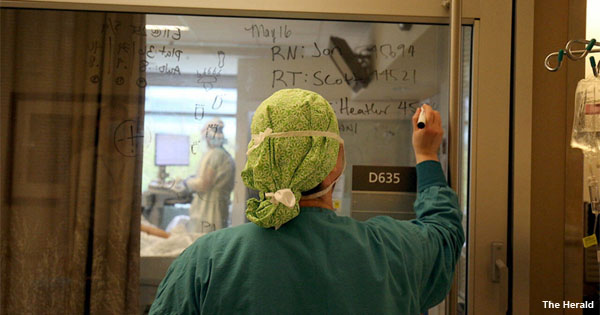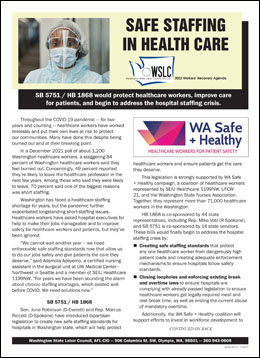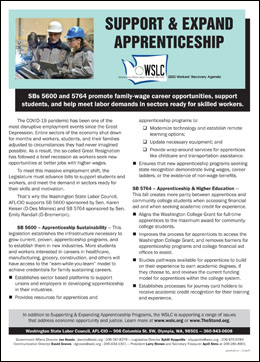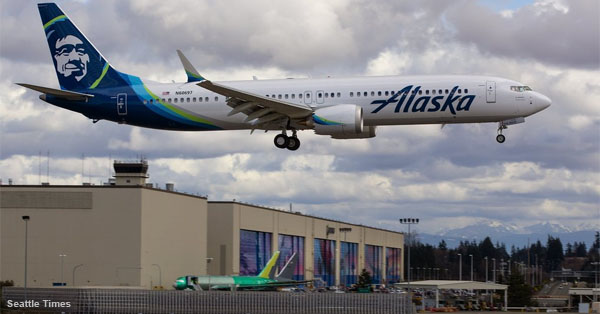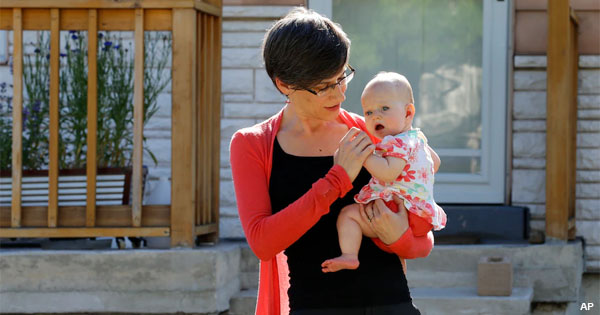NEWS ROUNDUP
Same mistakes at DOC | Bills moving in Olympia | How to get women back to work
Monday, January 31, 2022
COVID
► LIVE from the Seattle Times — Coronavirus daily news update, Jan. 31 — The latest count of COVID-19 cases in Washington totals 1,294,498 infections (14-day average of cases per day: 16,139) and 10,669 deaths.

► From the Tri-City Herald — ‘Stretched to their limit.’ Tri-Cities yet to hit COVID peak with hospitals nearly full — People continue to die from COVID-19 in the Tri-Cities area as the number of new cases confirmed each day in Benton and Franklin counties averaged more than 1,000 over the last week.
► From the Wenatchee World — Confluence Health prepares to exceed maximum capacity — With the number of patients close to its maximum, Confluence Health is beginning to double up patient rooms to increase its capacity.
► From the (Longview) Daily News — Oregon hospitals near breaking point during COVID surge — Fueled by the highly contagious Omicron variant, hospitalizations could soon surpass the pandemic high, Oregon officials said Friday.
► From NPR — Omicron cases drop even as deaths rise. Plus, a new variant has arrived in the U.S. — This week, we’re looking at a dramatic drop in cases, a continuing rise in hospitalizations and deaths, and the emergence of a new variant described as a “relative of Omicron.”
EDITOR’S NOTE — “Omicron BA.2” is at least as contagious as Omicron, is spreading rapidly in Europe and Asia, has been detected in some U.S. states (including Washington), and scientists expect it to spread in the country over the next month. The good news: early re[ports indicate that the vaccines and boosters remain effective against it. Read more here.
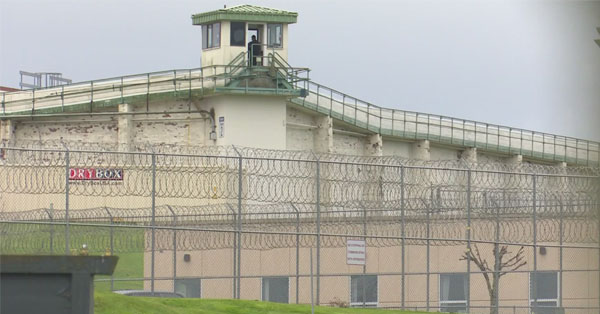
► From the Spokesman-Review — ‘Making the same mistakes’: COVID-19 outbreaks spread across Corrections facilities — A year ago COVID-19 swept through the state’s prisons. At Airway Heights Corrections Center, 92% of its population come down with the virus during the peak of the infections. Now as the Omicron variant spreads quickly across the state, cases in the state’s prisons are rising again, too. The Department of Corrections is seeing its highest COVID-19 numbers yet. As of Friday, 19 facilities were on outbreak status. More than 20% of the state’s prison population – about 2,600 inmates – are sick . More than 700 staff members also were sick with the virus as of Friday.
► From McClatchy — State trooper who told off Inslee over vaccine mandate dies from COVID — A former Washington State Patrol trooper who told off Gov. Jay Inslee over the COVID-19 vaccine mandate, resigned and then became a sought-after media figure, has died. Trooper Robert LaMay’s death was announced Friday. He was 50. Multiple media outlets have reported that LaMay died after contracting COVID-19.
► From the (Everett) Herald — Lynnwood pirate bar faces mutiny over ‘catch the virus’ show — Employees quit, bands canceled and patrons swore off the Vessel Taphouse after it advertised discounts for people sick with COVID.
► From the (Everett) Herald — Hospital lost 1% of staff to vax mandate, so why the shortage? — The requirement hardly made a dent in local nursing ranks. Blame burnout and issues brewing for years, officials say. Burnout among nurses during the pandemic has been well documented. At Providence’s Everett facility, officials said, turnover gradually increased in 2021, a reflection of national trends as nurses were expected to work longer hours and cover more patients.
► From the (Everett) Herald — ‘Few core staff left’: Droves of nurses take high-paying travel jobs — One nurse at Providence in Everett estimated travel nurses made up 80% of her unit. The consensus is that’s not sustainable.
► From Reddit — Travel nursing has become a breeding ground for pro-Union sentiment — Even the conservative (nurses) are trying to unionize. The landscape might actually change if we’re bold enough to unite.
THIS WASHINGTON
 ► From the News Tribune — Hospital administration, unions disagree on legislation for safe staffing — HB 1868 would establish minimum staffing ratios for hospitals, as well as shore up meal, rest break and overtime provisions for healthcare employees. Jane Hopkins, executive vice president of SEIU 1199NW and a registered nurse, said there has never been a time in her 20 years as a nurse when hospitals haven’t been understaffed, and says staffing has always been a “crisis.” Hopkins said hospital administrations have always figured out a way to “go around the law,” despite their claims that they want to make it easier for healthcare providers.
► From the News Tribune — Hospital administration, unions disagree on legislation for safe staffing — HB 1868 would establish minimum staffing ratios for hospitals, as well as shore up meal, rest break and overtime provisions for healthcare employees. Jane Hopkins, executive vice president of SEIU 1199NW and a registered nurse, said there has never been a time in her 20 years as a nurse when hospitals haven’t been understaffed, and says staffing has always been a “crisis.” Hopkins said hospital administrations have always figured out a way to “go around the law,” despite their claims that they want to make it easier for healthcare providers.
“We have to make it so that every healthcare worker, every nurse, and every CNA that walks into a hospital knows how many patients they need to look after because people are tired of going home every day knowing they’re not giving the care they need to their patients. Hospitals are putting profits before patients.”
Video: Why Washington needs safe staffing standards (Jan. 19)
Lawmakers introduce bipartisan healthcare safe staffing bills (Jan. 11)
Nurses to WA State Legislature: Address hospital staffing crisis (Dec. 14, 2021)
ALSO see the WSLC one-pager on this safe staffing bill.
► From the Spokesman-Review — Fight over hospital safe-staffing standard continues in Legislature — HB 1868, which would require hospitals to implement safe-staffing standards, including strict ratios, passed a House of Representatives panel Friday. It still needs to pass the full House before going to the Senate. “I do think it has the potential to really get to a place where we can really have some teeth in showing our nurses that we protect them and care about them and at the same time making sure hospitals have what they need to keep going,” said Rep. Lillian Ortis-Self (D-Mukilteo).
► From the Peninsula Daily News — Lawmakers mull nurse numbers — Rep. Mike Chapman (D-Port Angeles) said that HB 1868 is strongly supported by the Democratic Caucus in the Democrat-controlled House. “I have no doubt it will pass the House,” he said.

► From the Seattle Times — Expand and improve Washington’s apprenticeship programs (editorial) — SB 5600, sponsored by Sen. Karen Keiser (D-Des Moines), establishes grants to help apprenticeship programs upgrade equipment and use remote instruction, as well as fund wraparound support services — including child care and transportation — to allow more students to participate. SB 5764 cuts the red tape that prevents apprenticeship students from using the Washington College Grant, leveling the playing field and allowing for more “permeable pathways,” said Sen. Emily Randall (D-Bremerton). In improving and expanding the viability of apprenticeship programs in Washington, these proposals help continue the shift away from the blinkered college-or-bust mentality that continues to leave too many students dealing with the latter. Legislators should support both bills.
EDITOR’S NOTE — Although this editorial is largely positive, the Times also suggests including “reciprocity” with registered apprenticeship programs recognized at the federal level, which would weaken state oversight and accountability of Washington’s apprenticeship programs. Neither SB 5600 nor SB 5764 currently includes federal reciprocity language, nor should they.
Apprenticeship bills will boost opportunities (Jan. 13)
Help more students access quality job apprenticeships (Nov. 22, 2021, by Sens. Karen Keiser and Emily Randall)
ALSO see the WSLC one-pager on these apprenticeship bills.
► From the PSBJ — Bill takes aim at injuries, productivity quotas in warehouses statewide — Amazon is notorious for warehouse workers struggling to meet the quotas that fuel its fast-shipping business model. SB 5891 would also make it harder for employers to retaliate for workers missing quotas due to rest and meal breaks. As written, it gives employees the right to request the information behind a punishment and requires the state to investigate complaints of retaliation.
► From the AP — Delay of Washington’s long-term care program signed into law — Gov. Jay Inslee on Thursday signed into law an 18-month delay of the state’s new long-term care program that creates a defined benefit to help offset the costs of such care.
► From the Olympian — Washington Senate Democrats introduce legislation to limit the governor’s powers — The proposed legislation would allow the majority and minority leaders of the Senate and the speaker and minority leader of the House of Representatives to have more authority to terminate state of emergencies, or to terminate prohibitive orders that are issued by the governor.
AEROSPACE
► From the Seattle Times — Package deliveries boom, but Boeing’s aging cargo line risks losing dominance to Airbus — The trigger is a new global aviation carbon emissions standard that just six years from now is set to force the shuttering of all three of Boeing’s current Everett-built cargo jet programs — the 747F, 767F and 777F widebody freighters. The 737 MAX and the 787 meet the standard, as will the forthcoming 777X; Boeing’s older planes do not. That’s an ominous prospect for the Everett site, where Boeing employs about 30,000 people.
► From Reuters — Boeing wins Qatar freighter deal to be signed on Monday — Boeing is set to sign a launch order from Qatar Airways for a new freighter version of its 777X passenger jet on Monday, in a Washington, D.C. ceremony coinciding with a visit by the Gulf state’s ruling emir, U.S. officials said. Reuters reported last week that the U.S. planemaker was in advanced negotiations with the Gulf carrier for around 34 of the planned twin-engined freighters in a deal provisionally estimated to be worth $14 billion at list prices.
THAT WASHINGTON
 ► From Reuters — AFL-CIO strongly backs U.S. House bill on China competition, chips — The AFL-CIO, the largest U.S. labor organization, said Monday it strongly supported a U.S. House of Representatives bill designed to improve competition with China, boost U.S. semiconductor production and reform key trade provisions. The trade federation representing 12.5 million workers said in a letter to lawmakers the bill’s $52 billion for chips is critical to “addressing the current chip shortage that continues to adversely impact production in the automotive sector and elsewhere.” The U.S. House plans to take up the bill later this week.
► From Reuters — AFL-CIO strongly backs U.S. House bill on China competition, chips — The AFL-CIO, the largest U.S. labor organization, said Monday it strongly supported a U.S. House of Representatives bill designed to improve competition with China, boost U.S. semiconductor production and reform key trade provisions. The trade federation representing 12.5 million workers said in a letter to lawmakers the bill’s $52 billion for chips is critical to “addressing the current chip shortage that continues to adversely impact production in the automotive sector and elsewhere.” The U.S. House plans to take up the bill later this week.
► From the Seattle Times — Reshoring manufacturing might be Washington’s future (by Jon Talton) — Washington was among the least-hurt states by the “China shock” at the start of the century, when Chinese entry to the World Trade Organization cost almost 6 million U.S. factory jobs. But Washington’s situation could change. That makes it important to watch reshoring efforts closely.
► From The Hill — Breyer retirement latest complication for Biden spending bill — The timing of the announcement, nine months before the midterm elections, could make it more difficult for Biden and Democratic leaders to negotiate and get his signature climate and social spending proposal, Build Back Better, passed and signed into law.
► From the Washington Post — It’s not rocket science how to get women back to work (by Heather Long) — The irony of the moment is that at precisely the time when U.S. policymakers should think bigger about remaking the workplace to meet the needs of women, we are going in the wrong direction. The impending demise of Build Back Better threatens initiatives such as paid parental leave, more subsidies for child care and universal prekindergarten. Addressing these long-standing problems is not just a matter of doing something nice for women, children and families — it’s good for the overall economy. There’s an immediate need to keep more women from quitting (or forgoing promotions) because they are burned out, but there’s also a longer-term imperative to make it easier for more women to be part of the paid workforce in the years to come.
► From The Hill — Congress in jeopardy of missing shutdown deadline — Congressional negotiators are in danger of missing the Feb. 18 deadline for passing an omnibus package of the annual appropriations for fiscal 2022. A shutdown is unlikely, but some warn that if negotiators blow through the mid-February deadline, it increases the likelihood that Biden will have to settle for a yearlong stopgap funding measure to keep the government open.
NATIONAL
 ► From the Washington Post — Rents are up 40 percent in some cities, forcing millions to find another place to live — Rental prices across the country have been rising for months, but lately the increases have been sharper and more widespread, forcing millions of Americans to reassess their living situations. Average rents rose 14 percent last year, to $1,877 a month, with cities like Austin, New York and Miami notching increases of as much as 40 percent, according to real estate firm Redfin. And Americans expect rents will continue to rise — by about 10 percent this year — according to a report released this month by the Federal Reserve Bank of New York. At the same time, many local rent freezes and eviction moratoriums have already expired.
► From the Washington Post — Rents are up 40 percent in some cities, forcing millions to find another place to live — Rental prices across the country have been rising for months, but lately the increases have been sharper and more widespread, forcing millions of Americans to reassess their living situations. Average rents rose 14 percent last year, to $1,877 a month, with cities like Austin, New York and Miami notching increases of as much as 40 percent, according to real estate firm Redfin. And Americans expect rents will continue to rise — by about 10 percent this year — according to a report released this month by the Federal Reserve Bank of New York. At the same time, many local rent freezes and eviction moratoriums have already expired.
► From Vice — Amazon told workers union organizers are ‘thugs,’ NLRB finds — Amazon representatives told workers at JFK8, its largest New York City warehouse, that an ongoing union drive would fail because union organizers were “thugs,” and said it would be “futile” to vote for a union because a union would “never happen here,” a NLRB complaint states. The giant fulfillment center warehouse in Staten Island is expected to face a union election in the coming months, the second Amazon warehouse to reach this milestone in the United States.
► From the Army Times — Guard troops can unionize on state active duty, DoJ says — National Guard troops can legally organize and form unions while serving on state active duty orders, the Justice Department said in a court filing last week.
 ► From Reuters — Analysts eye UPS automation efforts to offset increased wage costs — Higher labor costs during the pandemic-plagued holiday season may erode the profits of United Parcel Service, the world’s biggest package delivery firm, which is set to report quarterly earnings on Tuesday. Investors will be watching for the margin impact from the company’s mostly unionized delivery workforce. UPS hired nearly 100,000 people for the holiday season and plans to keep a portion of those workers on board. The company increased worker pay in certain regions to an average of $18 per hour from $15, it said in June. Union pay and benefits for UPS drivers, sort center workers and package loaders generally exceed those at non-union shops like Amazon.
► From Reuters — Analysts eye UPS automation efforts to offset increased wage costs — Higher labor costs during the pandemic-plagued holiday season may erode the profits of United Parcel Service, the world’s biggest package delivery firm, which is set to report quarterly earnings on Tuesday. Investors will be watching for the margin impact from the company’s mostly unionized delivery workforce. UPS hired nearly 100,000 people for the holiday season and plans to keep a portion of those workers on board. The company increased worker pay in certain regions to an average of $18 per hour from $15, it said in June. Union pay and benefits for UPS drivers, sort center workers and package loaders generally exceed those at non-union shops like Amazon.
EDITOR’S NOTE — This article also explains that UPS has the advantage of more predictable wage costs, versus non-union competitors that have suddenly had to pay much more to attract workers. Also, UPS revenue is up and the company expects to report a profit. And yet, the headline writer notes that a single “analyst” has wondered aloud if that profit might be higher if UPS could automate its work and cut jobs. I guess that’s why they call it the Business Section of the newspaper.
The Stand posts links to Washington state and national news of interest every weekday morning by 10 a.m.

